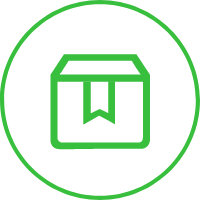在中国,绿化工程的发展越来越受到人们的重视。绿化工程不仅可以美化环境,提高生活质量,还可以改善空气质量,保护生态平衡。而在绿化工程中,苗木采购是一个非常重要的环节。那么,关于绿化工程苗木采购,税率是多少呢?下面我们一起来了解一下。
苗木采购税率的基本情况
根据我国的相关法律法规,对于苗木采购的税率有一定规定。一般而言,苗木采购按照增值税的税率计征。增值税税率分为基础税率和优惠税率两种情况。具体的税率标准是根据当地的政策规定来决定的。
在大部分地区,绿化工程苗木采购的增值税税率为13%。这是我国目前的基础税率标准。也就是说,苗木采购的价格要加上13%的增值税。
苗木采购税率与适用条件
虽然基础税率是13%,但是在一些情况下,苗木采购可以适用优惠税率,税率可能会有所减免。
首先,对于一些重大绿化工程项目,苗木采购可能可以享受到低税率或者减免税的政策。这需要根据实际项目情况向相关税务机关进行申请,并提供相关的证明材料。
其次,若苗木采购的用途是用于环境改善,比如植树造林、森林防护等,则也可以适用优惠税率。这样可以鼓励更多的人参与到环境保护事业中来。
此外,对于一些贫困地区的绿化工程项目,税务部门也会给予一定的减免税政策,以促进当地经济的发展。
苗木采购税率的计算方式
关于苗木采购的税率计算方式,我们可以通过以下的方式进行理解。
假设某地区的苗木采购税率为13%,苗木的采购价格为10000元。那么,计算公式为:
增值税金额 = 采购价格 × 税率
增值税金额 = 10000 × 0.13 = 1300 元
也就是说,苗木采购的增值税金额为1300元。
合规遵循,合理购买
对于绿化工程苗木采购而言,要想合规遵循,合理购买,我们需要注意几点:
- 了解当地政策:不同地区可能存在不同的税率政策,我们需要先了解当地的政策规定,确保采购过程的合规性。
- 选择正规渠道:选择正规的苗木供应商或者合作单位进行采购,以确保苗木的质量和合规性。
- 保存好相关票据:在苗木采购过程中,保留好所有的票据和凭证,这样可以方便在需要的时候提供证明和申报纳税。
- 及时了解政策变动:税收政策可能随时变动,我们需要及时了解最新的政策规定,以便做好相关准备。
总结
绿化工程苗木采购的税率是一个重要的问题,它直接影响到绿化工程的成本和正常进行。根据我国的相关规定,苗木采购按照增值税税率计征,基础税率一般为13%。同时,在符合一定条件的情况下,苗木采购也可以适用优惠税率或者减免税政策。
在实际的苗木采购过程中,我们需要了解当地的税率政策,选择正规渠道进行采购,保存好相关票据,并及时了解政策的变动。
只有在合规遵循的前提下,我们才能合理购买苗木,促进绿化工程的健康发展,为美丽的环境贡献自己的力量。
Translated Content: htmlGreening projects in China are getting more and more attention. Greening projects not only beautify the environment and improve the quality of life but also enhance air quality and protect ecological balance. In greening projects, the purchase of seedlings is a crucial step. So, what is the tax rate for purchasing seedlings for greening projects? Let's find out together.
Overview of Seedling Purchase Tax Rate
According to relevant laws and regulations in China, the tax rate for purchasing seedlings is determined by the value-added tax (VAT) rate. The VAT rate has two categories: the standard rate and the preferential rate. The specific tax rate is determined by local policies.
In most regions, the VAT rate for purchasing seedlings for greening projects is 13%. This means that the purchase price of seedlings should include a 13% VAT.
Seedling Purchase Tax Rate and Applicable Conditions
Although the standard rate is 13%, there are circumstances under which a preferential tax rate or tax exemptions may apply to seedling purchases.
Firstly, for major greening projects, lower tax rates or exemptions may be applicable to seedling purchases. This requires applying to the relevant tax authorities based on the project's specific conditions and providing the necessary supporting documents.
Secondly, if the purpose of seedling purchase is for environmental improvement, such as afforestation or forest conservation, preferential tax rates can also be applied. This encourages more people to participate in environmental protection efforts.
Additionally, in impoverished areas, the tax authorities may grant certain tax reduction or exemption policies for greening projects to promote local economic development.
Calculation Method for Seedling Purchase Tax Rate
We can understand the calculation method for seedling purchase tax rate through the following example:
Assuming the VAT rate for seedling purchase in a certain region is 13% and the purchase price of seedlings is 10,000 yuan. The calculation formula is as follows:
VAT Amount = Purchase Price × Tax Rate
VAT Amount = 10,000 × 0.13 = 1,300 yuan
Therefore, the VAT amount for seedling purchase would be 1,300 yuan.
Compliance and Reasonable Purchasing
When it comes to seedling purchase for greening projects, we should pay attention to the following points in order to comply with regulations and make reasonable purchases:
- Understand local policies: Different regions may have different tax rate policies, so it is important to first understand the local policy requirements and ensure compliance during the purchase process.
- Select reputable channels: Choose reputable seedling suppliers or partners to ensure the quality and compliance of the seedlings.
- Keep relevant documents: Keep all receipts and vouchers related to seedling purchases, which will be helpful for future proof and tax declaration.
- Stay updated on policy changes: Tax policies can change at any time, so it is important to stay informed about the latest policy requirements in order to make necessary preparations.
Conclusion
The tax rate for purchasing seedlings in greening projects is an important factor that directly affects project costs and progress. According to relevant regulations in China, seedling purchases are subject to VAT, with a general VAT rate of 13%. Additionally, under certain conditions, preferential tax rates or exemptions may apply to seedling purchases.
In the actual process of seedling purchase, it is necessary to understand the local tax rate policies, choose reputable channels for procurement, keep relevant documents, and stay informed about policy changes.
Only by following compliance requirements and making reasonable purchases can we promote the healthy development of greening projects and contribute to creating a beautiful environment.
 手机版
手机版



